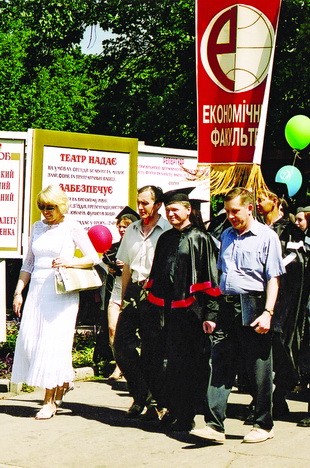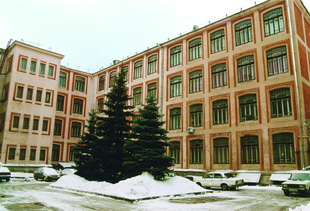About the School
Web site: http://www.econom.kharkov.ua/

The School of Economics of V. N. Karazin Kharkiv National University was founded in 1933. Nowadays it is the largest educational, methodological and research center of the University. It consists of 8 departments and employs over 100 full professors, associate professors and lecturers. The School enrolls about 3,000 full-time and part-time students and 50 postgraduates. Top specialists from the Ministries of Ukraine, City and Region Administration, the leading banks and enterprises of Kharkiv together with renowned economists from the USA, Germany and other countries take part in the academic process.
Graduates of the School of Economics work as economists and financiers, public servants and accountants, programmers, analysts and auditors in such organizations as Ministries of economy, finance and statistics, in banks, planning, finance and accounting departments of enterprises, tax administrations, and as lecturers of economic disciplines in higher education institutions.
The School's faculty attend re-training courses at the Ministries of Economics and Finance, the State Statistics Committee, the National Academy of Sciences, as well as at schools of economics of both home and overseas universities.
The following forms of studies are available at the School of Economics: full-time, part-time studies and second higher education. E-learning technologies are introduced in the educational process of the School. Parallel form of studies is available for students of other schools of the University and other higher education institutions, so that students could obtain an economist’s or manager’s degree parallel to their first degree.
School has one specialized council for conferring candidate's and doctor's degrees in three specialities: 8.00.01 “Economic Theory and History of Economic Thought”, 8.00.07 “Demography, Labour Economics, Social Economics and Policy”, 8.00.08 “Money, Finance and Credit”.

The School's Academic Council together with the Educational and Methodological Council defines the policy of the School's development.
Students of the School are engaged in research work conducted by the Students' Scientific Society.
The School's training facilities are regularly upgraded and expanded. The School has modern computer classes, a publishing center, language laboratories used for training economists and managers according to the modern standards.
The School of Economics can implement distance training.
|
|


